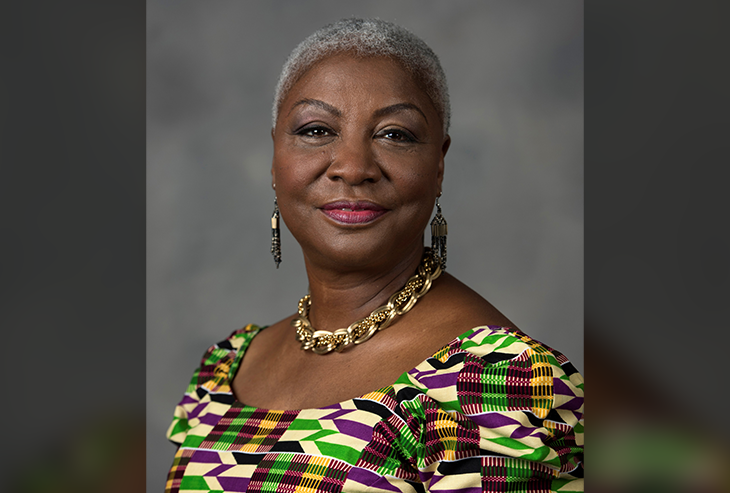In this column distributed by the Elon University Writers Syndicate, Jean Rattigan-Rohr, vice president for access and success and professor of education at Elon, notes both the similarities and differences between George Floyd's death and those killed at lynchings throughout American history.
By Jean Rattigan-Rohr
It’s 2020, and the whole world has just witnessed the public lynching of an unarmed black man under the knee of a white police officer who clearly could not and did not want to see the humanity in George Floyd. The world saw it up close, and it sent a collective jolt through the hearts of decent people everywhere.

It was the latest in the shameful history of public lynchings in America, but there’s a difference between the one on May 25, 2020, that took the life of Floyd, and those from the past.
Generations ago, spectators turned up to witness these savage immoralities prepared to celebrate and to cheer. Some would even create postcards of these killings, macabre mementos to send to their friends and relatives. Many who received the gruesome postcards held onto them as if they were precious relics.
By contrast, most spectators of the videos documenting this modern-day lynching are appalled and unnerved. Many needed to look away from the horrific acts of former police officer Derek Chauvin, rather than gawk in giddy and sinister euphoria.
Among the current spectators, many of us can’t comprehend what causes a person to willfully and deliberately apply forceful and continuous pressure to someone else’s neck for more than eight minutes. Even more, how can someone do this with hands in pockets, apparently calm, and with no intention to provide release?
We also try, but fail, to understand the lack of response and empathy from the other three policemen. They stood or knelt in such close proximity to Floyd while he lay dying on the side of the road. They heard his pleas, and still refused to help.
“Please,” he asks pleadingly.
“Sir,” he says respectfully.
“You are killing me,” he states truthfully.
Still, no one budges.
Clearly, these men could hear Floyd, but they would not listen to him, and by turning a deaf ear, they ignored his humanity and his dignity.
The story of Floyd’s death reads like that of the Good Samaritan from the Bible, with a man dying on the side of the road and ignored by some of those who pass by. In that story, Jesus says to the lawyer who wants to know how to inherit eternal life that we only need to love God, and to love our neighbor as we love ourselves. Who is our neighbor? Anyone to whom we show compassion.
Except in Floyd’s story, there is no Good Samaritan who eventually came to his aid. Instead, three policemen sworn to uphold the law see a man dying under the knee of a fourth, but they find no compassion and look the other way.
How many Americans, generation after generation, year after year, day after day, have been looking the other way? How many have been hearing, but not listening to the cries of black neighbors about the oppression, racism, discrimination, and systemic injustices they face on a regular basis?
Like this modern lynching, those in the past carried out by vile and hateful white men were also done in public spaces, usually by roadsides, for the purpose of maximum intimidation. They served as an incessant warning to black people that they are to be relegated to a place of disadvantage, oppression, and suppression. At the same time, they also functioned as a proxy to ratify a perverse protection of opportunistic place, privilege, and advantage to white people.
As we collectively watch news media replay this latest killing, I wonder — Is anyone listening? Will Floyd’s lynching also serve to deepen and extend historic wrongs or will we look at his death as the moment that finally upends America’s unholy accord with oppression, cruelty and discrimination of black people? Have people begun not just hearing, but listening, and helping?
All over the nation and, indeed, the world, protests are unfolding on a scale and with such a broad coalition as has not previously been seen. If the reactions in city after city of the witnesses to this modern lynching are any indication, we have clearly arrived at a major American intersection.
Dear God, please, give us the courage and strength to make this journey. The time to take the right turn toward justice, equity, and equal opportunity for black America is now!
—
Views expressed in this column are the author’s own and not necessarily those of Elon University.



